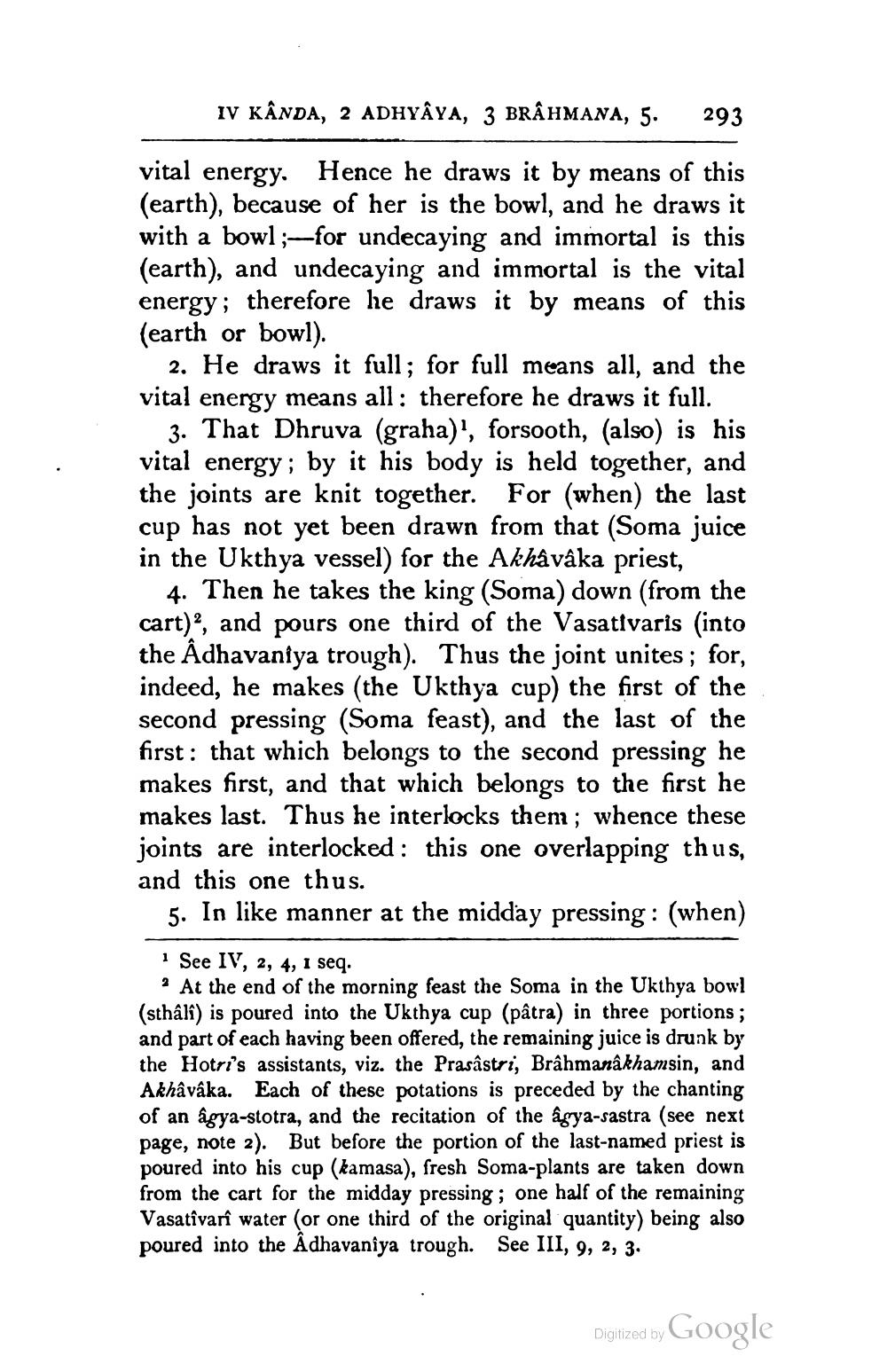________________
IV KÂnda, 2 ADHYAYA, 3 BRÂHMANA, 5.
293
vital energy. Hence he draws it by means of this (earth), because of her is the bowl, and he draws it with a bowl;—for undecaying and immortal is this (earth), and undecaying and immortal is the vital energy; therefore he draws it by means of this (earth or bowl).
2. He draws it full; for full means all, and the vital energy means all: therefore he draws it full.
3. That Dhruva (graha)', forsooth, (also) is his vital energy; by it his body is held together, and the joints are knit together. For (when) the last cup has not yet been drawn from that (Soma juice in the Ukthya vessel) for the Akhâvâka priest,
4. Then he takes the king (Soma) down (from the cart), and pours one third of the Vasativaris (into the Adhavaniya trough). Thus the joint unites; for, indeed, he makes (the Ukthya cup) the first of the second pressing (Soma feast), and the last of the first: that which belongs to the second pressing he makes first, and that which belongs to the first he makes last. Thus he interlocks them; whence these joints are interlocked: this one overlapping thus, and this one thus.
5. In like manner at the midday pressing : (when)
See IV, 2, 4, 1 seq. . At the end of the morning feast the Soma in the Ukthya bowl (sthâlî) is poured into the Ukthya cup (pâtra) in three portions ; and part of each having been offered, the remaining juice is drunk by the Hotri's assistants, viz. the Prasastri, Brâhmanâkhamsin, and Akhâvâka. Each of these potations is preceded by the chanting of an ágya-stotra, and the recitation of the âgya-sastra (see next page, note 2). But before the portion of the last-named priest is poured into his cup (kamasa), fresh Soma-plants are taken down from the cart for the midday pressing; one half of the remaining Vasatîvarî water (or one third of the original quantity) being also poured into the Adhavaniya trough. See III, 9, 2, 3,
Digitized by Google




